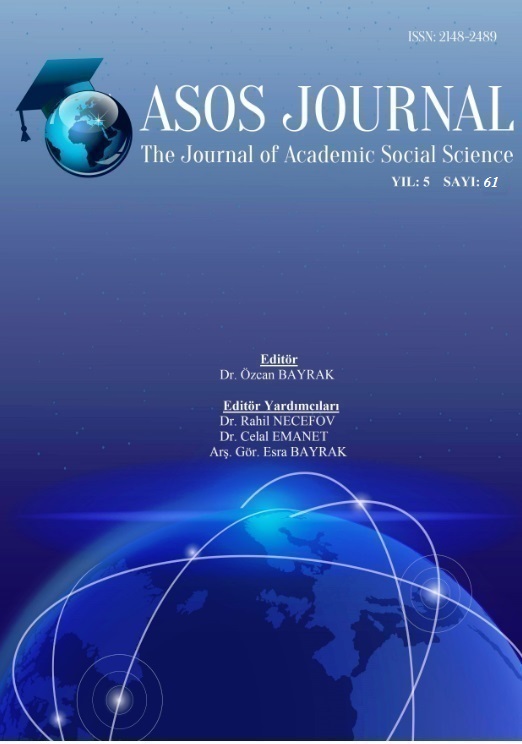Author :
Abstract
Bu çalışma, Gençlik ve Spor Bakanlığına bünyesindeki gençlik liderlerinin liderlik davranışlarının belirlenmesi amacıyla gerçekleştirilmiştir. Araştırma, genel tarama metotlarından ilişkisel tarama modeli ile yapılmış, nicel ve nitel araştırma yaklaşımları birlikte (karma yöntem) kullanılmıştır. Verilere ulaşmada, “Liderlik Yönelim Ölçeği” (1992, Luthans; 1999, Cömert) ile nitel yöntemde görüşme tekniği kullanılmıştır. Veriler; Tukey ve LSD testleri ile betimsel ve içerik analizi yöntemleriyle çözümlenmiştir. Araştırma sonucunda; Gençlik liderlerinin göreve ve insana yönelik liderlik davranışlara ilişkin yönelimlerinin, orta düzeyde olduğu, insana yönelik liderlik boyutunda; cinsiyet, gençlik alanında çalışma süresi, görev yaptığı coğrafi bölge ve görev türünde puanların anlamlı düzeyde farklılaştığı görülmüştür. Gençlik liderlerinin insana yönelik liderlik davranışları; İletişim, takım çalışması, yetki devri, güven duygusu, dâhil etme, temsil etme, rehber olma ve yaratıcılık temalarından; göreve yönelik davranışları ise; amaç farkındalığı, planlama, kuralları belirtme, gönüllülük, karar verme, rol model olma ve yöneltme temalarından oluştuğu anlaşılmıştır.
Keywords
Abstract
This study was conducted to find out the leadership behaviors of youth leaders within the body of the Ministry of Youth and Sport. The study was conducted with a general screening method - relational screening model, and quantitative and qualitative research approaches (mixed method) were used together. “Leadership Orientation Scale” (1992, Luthans; 1999, Cömert) and qualitative interview technique were used to reach data. The data were analyzed with descriptive and content analysis methods by using Tukey and LSD tests. The results of the study showed that youth leaders’ orientations concerning leadership behaviors for task and human were moderate and in the dimension of human oriented leadership, gender, period of working in the field of youth, geographical region of place of work, and job type scores were found to differ significantly. It was found that the human oriented leadership behaviors of youth leaders consisted of the themes of communication, team work, delegation of authority, confidence, inclusion, representation, guidance and creativity; while their task oriented behaviors consisted of the themes of awareness of purpose, planning, specifying the rules, volunteering, decision making, being a role model and directing.





